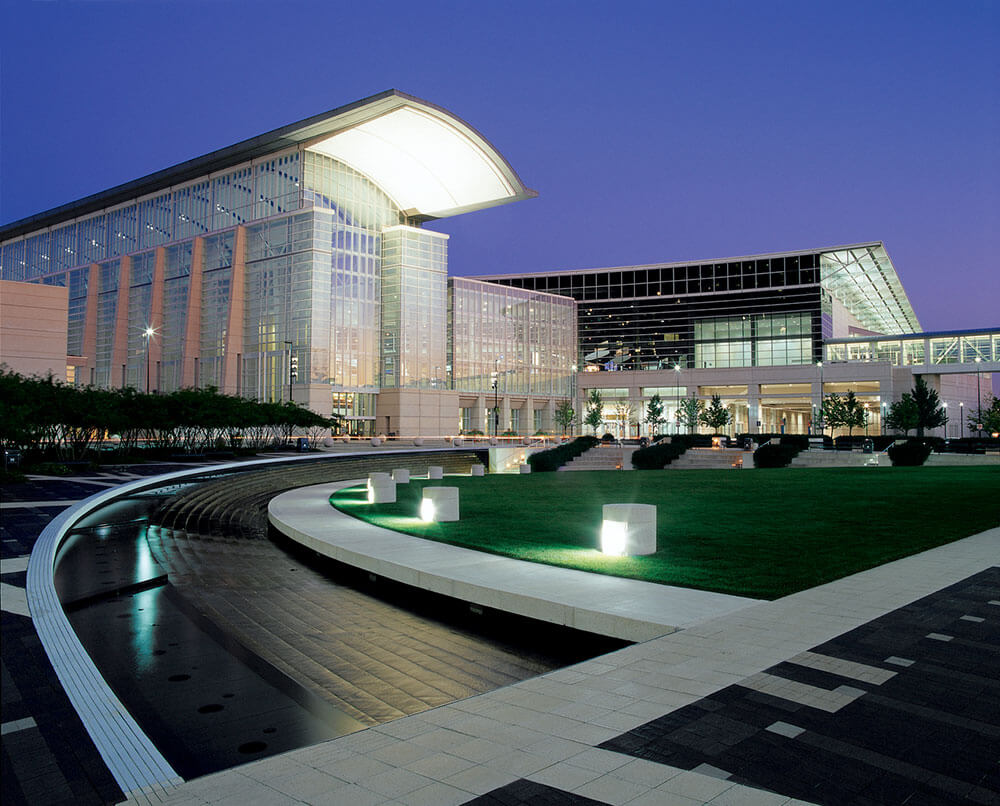
The CWT’s Future of Sustainable Events supplement names The PARKROYAL on Pickering in Singapore among “three of the best sustainable venues.” See more photos in the gallery below. (Photo by Victor on Unsplash)
In less than five years, climate-conscious millennials will become the world’s largest group of business travelers, CWT Meetings & Events says, making sustainability an even more important business consideration for the events industry.
“The sustainability of the meetings and events industry, in fact of the entire travel industry, [will be] at the forefront of companies’ and planners’ minds in 2020,” said Derek Sharp, senior vice president and global managing director, CWT Meetings & Events, the global meetings and events division of CWT, in a press release announcing the release of The Future of Sustainable Events, a supplement to the CWT M&E 2020 Future Trends Report.

Derek Sharp
“It’s driven,” he said, “by news coverage of climate change but, more importantly, it’s supported by … millennials who are poised to become the biggest group of business travelers globally from 2024 onwards, and the centennials [or Generation Z] who are right behind them.
“These are people for whom travel has become commonplace and accessible in a way that it wasn’t for older generations,” Sharp added. “They want to continue meeting in popular destinations, but they are also hyper aware of the need to adopt sustainable practices that respect the environment and local communities wherever they go.”
And the pressure is on. Already, flygskam, or flight shame, and other travel trends, have some — as Convene previously reported — asking: “Do you always have to meet face-to-face?”
This year, Deloitte’s Global Millennial Survey found that climate change is the greatest concern for that generation. And that applies to not just millennials — as was proven when Greta Thunberg, the 16-year-old environmental activist from Sweden, grabbed the world’s attention when she sailed across the Atlantic — as an alternative to air travel — to attend last month’s United Nations Climate Action Summit in New York.
In The Future of Sustainable Events, CWT says there is a “huge opportunity for events to embed and showcase sustainability and responsibility.” It shares steps planners can take such as choosing sustainable venues and eliminating plastic waste, lists five ways to plan more sustainable events without increasing costs, and singles out “three of the best sustainable venues.”
They are Chicago’s McCormick Place, with features including a 2.5 acre rooftop garden that CWT says produces seasonal yields of up to 7,000 pounds of vegetables and herbs used in venue catering, plus a new food recycling program that turns waste into energy and fertilizer; Hotel Herman K in Copenhagen, which aims to be carbon neutral by 2025 and does not use any chemicals in its cleaning products; and PARKROYAL on Pickering in Singapore, a garden-concept hotel that harvests rain water and has eliminated single-use plastics, including from meeting spaces.
Despite the global sustainability push, some event organizers have not gotten on board. Convene’s Annual Meetings Market Survey found that only 11 percent of respondents said sustainability clauses are included in their RFPs, and 41 percent of association planners indicated that sustainability is not part of their event design.
That could be a big oversight. CWT noted in a statement that “as consumers and employees around the world seek out companies and brands that reflect their values, major international initiatives such as the United Nations Sustainable Development Goals are helping to drive home the message that, in 2020 and beyond, sustainability and responsible business are no longer just a feel-good item … but have real consequences for a company’s brand and bottom line.”
Cristi Kemp is executive editor at Convene.



